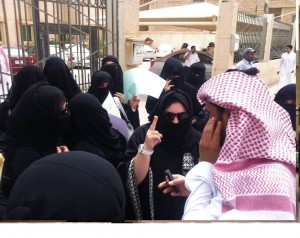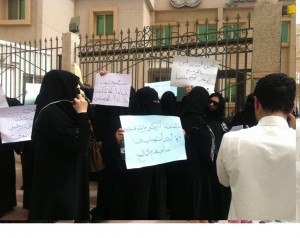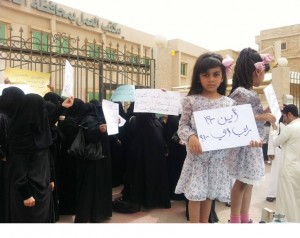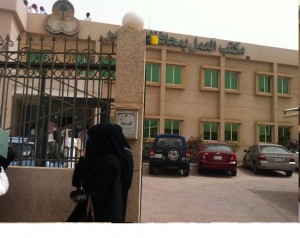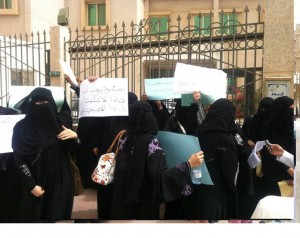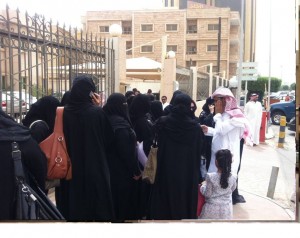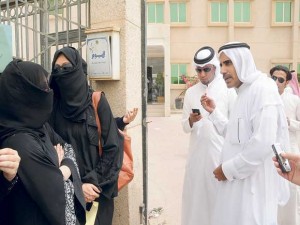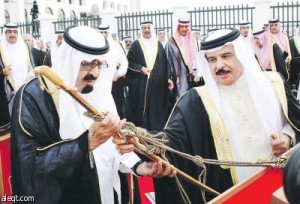VZCZCXRO5227
OO RUEHBC RUEHDBU RUEHDE RUEHDH RUEHDIR RUEHIHL RUEHKUK RUEHLH RUEHPW
RUEHROV
DE RUEHRH #0408/01 0691436
ZNY CCCCC ZZH
O 101436Z MAR 09
FM AMEMBASSY RIYADH
TO RUEHC/SECSTATE WASHDC IMMEDIATE 0356
INFO RUEHEE/ARAB LEAGUE COLLECTIVE IMMEDIATE
RUEHZM/GULF COOPERATION COUNCIL COLLECTIVE IMMEDIATE
RUCNIRA/IRAN COLLECTIVE IMMEDIATE
RUCNRAQ/IRAQ COLLECTIVE IMMEDIATE
RUCNISL/ISLAMIC COLLECTIVE IMMEDIATE
RUEHHH/OPEC COLLECTIVE IMMEDIATE
RUEHYN/AMEMBASSY SANAA IMMEDIATE 1635
RUEHJI/AMCONSUL JEDDAH IMMEDIATE 0086
RHMFISS/COMUSAFCENT SHAW AFB SC IMMEDIATE
RHMFISS/HOMELAND SECURITY CENTER WASHINGTON DC IMMEDIATE 0271
RHRMAKS/COMUSNAVCENT IMMEDIATE
RHEBAAA/DEPT OF ENERGY WASHINGTON DC IMMEDIATE
RUEATRS/DEPT OF TREASURY WASHDC IMMEDIATE
RUEHRH/CHUSMTM RIYADH SA IMMEDIATE
RUEKJCS/JOINT STAFF WASHDC IMMEDIATE
RUEAIIA/CIA WASHDC IMMEDIATE
RUEKJCS/SECDEF WASHDC IMMEDIATE
RHEHAAA/WHITE HOUSE WASHINGTON DC IMMEDIATE
RUEKDIA/DIA WASHINGTON DC IMMEDIATE
RHMFISS/HQ USCENTCOM MACDILL AFB FL IMMEDIATE
RHEHNSC/NSC WASHDC IMMEDIATE
C O N F I D E N T I A L SECTION 01 OF 03 RIYADH 000408
SIPDIS
DEPARTMENT FOR M U/S PKENNEDY, DOE FOR DAS WBRYAN, CENTCOM
FOR POLAD
E.O. 12958: DECL: 03/11/2014
TAGS: ECON ENRG EPET IR IZ MARR MCAP MOPS OVP PGOV
PK, PREL, PTER, SA, YM
SUBJECT: SAG-USG COUNTER-TERRORISM PARTNERSHIP
REF: A. A:07 RIYADH 1778
¶B. B: RIYADH 272
¶C. C: RIYADH 268
¶D. D: RIYADH 326
Classified By: Deputy Chief of Mission David Rundell
for reasons 1.4 (B) and (D)
¶1. (C) SUMMARY. The SAG’s MOI-hosted Security Conference in
Riyadh and the meeting between CENTCOM DCOM LtGen John Allen
with Asst. Minister for National Security Affairs Prince
Mohammed bin Naif (MbN) highlight the SAG’s commitment to
counter-terrorist activity in the Kingdom by partnering with
the USG in protecting its critical infrastructure, especially
its energy production sites. MbN reconfirmed the SAG’s
commitment to pay all critical infrastructure protection
costs of the Office of Program Management-Ministry of
Interior (OPM-MOI), including USG employee salaries. He
concurred any changes necessary in the Technical Cooperation
Agreement (TCA) be made to allow such payments, but remarked
hopefully the lawyers would not be problematic. Regarding
the Saudi deradicalization program, he considered it a
success in generating Saudi public anger at radical
extremists and was unconcerned by those who escaped the
program to rejoin Al Qaeda (AQ), noting they actually serve
the SAG’s purpose because they delegitimize extremism by
rebuffing the chance for rehabilitation and a new life,
further alienating violent radicals from the populace. MbN
did express concern that some ARAMCO employees posed a threat
of internal sabotage to oil facilities due to extremist
sympathies. END SUMMARY.
OPM-MOI NOW OPERATIONAL
———————-
¶2. (SBU) OPM-MOI, a DOS-led interagency security assistance
organization including DOE and DOD, established by the formal
TCA signed by the Secretary and Minister of Interior HRH
Prince Naif bin Abdulaziz Al Saud in May 2008 to partner with
the Saudi MOI in protecting the Kingdom’s critical
infrastructure with full SAG funding (Reftel A), is now
operational in Saudi Arabia. In the March 9 meeting between
LtGen Allen and MbN, LtGen Allen introduced the senior U.S.
military officer assigned to assist the MOI in training its
Facilities Security Force (FSF). Likewise, we informed MbN
of the arrival of the senior DOS officer in Riyadh on March
10 to serve as OPM-MOI’s Program Manager and overall leader.
These officers, along with the senior DOE Liaison and
associated CENTCOM and Embassy Riyadh personnel, now serve as
the core of OPM-MOI who will begin assisting the Saudis in
enhancing the protection of their critical infrastructure,
with initial focus on Saudi oil facilities.
¶3. (C) LtGen Allen reaffirmed to MbN the USG’s full
commitment to the protection of Saudi critical
infrastructure, emphasizing that CENTCOM Commander GEN David
Petraeus guarantees CENTCOM’s full support to this program.
Both concurred on the importance to the global economy of
preventing terrorists from attacking Saudi oil facilities.
MbN asserted the goal is to prevent attacks from ever being
carried out, recommending OPM-MOI include intelligence links
in its operational plans. LtGen Allen commended MOI’s
success in dealing with internal terrorist threats in the
Kingdom, and its successful rehabilitation program with Saudi
Guantanamo returnees and extremists captured in Saudi Arabia.
RIYADH 00000408 002 OF 003
¶4. (SBU) MbN was informed that the initial OPM-MOI work
contracts, consisting of the DOE Project Specific Agreement
(PSA) to conduct vulnerability assessments of oil sites and
the DOD Letter of Offer and Acceptance (LOA) to implement
urgent needs training of FSF troops, have been submitted to
MOI staff for approval and signature. MbN was grateful for
USG efforts and assured us full funding would soon follow the
signing of these documents, and reconfirmed the SAG’s
commitment to pay all OPM-MOI costs. He also agreed to fund
all USG employee costs, concurring with any necessary TCA
changes to allow such payments, commenting that “hopefully
the lawyers will not cause us any problems.”
¶5. (SBU) MbN had previously acknowledged to the Ambassador
the MOI’s lack of technical capacity in effectively working
with OPM-MOI. To rectify this problem, OPM-MOI has begun
coordination with the Saudis for SAG-funded English language
and management training in the U.S. for mid-level MOI
officers who will be our future interlocutors. In the
interim, OPM-MOI is drafting a plan for MOI to contract and
fund bilingual Americans experienced in USG contracting and
Foreign Military Sales to work in MOI assisting in PSA, LOA,
and related OPM-MOI projects.
DEFUSING THE INTERNAL SAUDI THREAT
———————————-
¶6. (SBU) MOI sponsored the second annual Riyadh Security
Conference from March 2-5, which included such notables as
FBI Director Robert Mueller and former Attorney General Edwin
Meese. Other participants were U.S., British and Saudi
security officials, academics, and the U.S. and U.K
Ambassadors to the Kingdom. The theme of this well-received
conference was how to deradicalize extremists. This topic
was noteworthy as several Saudi Guantanamo returnees had
recently disappeared, with two resurfacing in Yemen as AQ
members (Reftels B, C and D).
¶7. (C) In private discussions with us, MbN observed it was
unfortunate these individuals had escaped and some had
rejoined AQ, but stated the Saudi deradicalization
rehabilitation program was nonetheless a success and was
unconcerned by these individuals. He explained while these
Guantanamo returnees rejoining AQ in Yemen was embarrassing
to the SAG, the program itself was achieving the true goal of
turning the Saudi populace against extremist radicals. These
individuals were being denounced by the Saudi public, and
even by their immediate families. The SAG was offering these
individuals employment and marriage opportunities to allow
new, peaceful and productive lives. MbN shared that if the
Saudi people saw that the SAG had offered these extremists a
helping hand which they slapped away, instead of a clenched
fist used against them, then their families, tribes and the
Saudi nation as a whole would view the SAG as “the
benefactor” and these unrepentant extremists as “deviants.”
According to MbN, in Arab culture this is an extremely
powerful and advantageous position for the SAG as it cuts off
the necessary public support extremists need to operate.
THREATS - YEMEN, IRAN AND FROM WITHIN
————————————-
¶8. (C) In response to his views on the current threat, MbN
listed three:
— Yemen was “a dangerous, failed state” similar to
Afghanistan by allowing AQ to regroup and become its
RIYADH 00000408 003 OF 003
operational base. He mentioned the SAG was using its funds
to gain Yemeni tribal cooperation through public works
programs, especially as a way to curb the lawlessness along
the Saudi-Yemeni border. MbN offered that while Yemeni
President Saleh was not the best leader, after 30 years in
power, his removal, either through natural causes or
rebellion, would leave a vacuum that would further weaken
Yemen. He opined that overtures to the Taliban in
Afghanistan were useful, as it would make Al Qaeda leaders
there nervous and unsure if they would be betrayed, but this
would also make them more likely to seek “safe haven” in
Yemen. LtGen Allen informed that U.S. Special Forces and
U.S. Navy trainers were stepping cooperation with Yemeni
forces to counter border and maritime threats.
— Iran, according to MbN, was a greater threat from its
destabilizing actions than from its nuclear program. He
added Iran currently has many weaknesses due to its
deteriorating economy. USG overtures for talks with Iran
would exploit those weaknesses and further undermine the
mullahs.
— Regarding the internal Saudi threat, MbN stated AQ was
beaten down in the Kingdom, but he was concerned of “insiders
in ARAMCO” and that ARAMCO employees with full access to its
facilities were extremists or extremist/Hezbollah
sympathizers, using their authorized access and/or technical
knowledge to commit sabotage. Again, he then emphasized the
importance of OPM-MOI to provide rapid training of the FSF
and detailed assessments of the vulnerabilities of Saudi oil
facilities.
¶9. (C) COMMENT. The SAG has worked to counter terrorism
within the Kingdom, achieving significant success. Both
through its kinetic operations against AQ, to its soft power
deradicalization rehabilitation program where it has turned
the Saudi public against AQ and violent extremism. Bilateral
cooperation on the protection of Saudi critical
infrastructure, as previously reported, is of immense
importance to ensure adequate energy supplies are available
to the global economy. OPM-MOI offers a tremendous venue to
strengthen the U.S.-Saudi bilateral relationship which then
allows a broadening of Saudi support on a host of issues.
END COMMENT.
FRAKER




